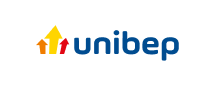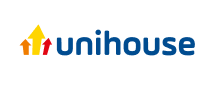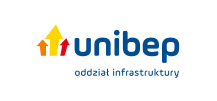Unihouse at the 9th "Perły Samorządu" Congress in Toruń
During the 9th Perły Samorządu Congress in Toruń, Kamil Kowalczyk, member of the Management Board of Unihouse, participated in the panel "Regional and Local Community Development: Funding for Local Governments – A Time of Accumulation and Urgent Adjustments?" Together with representatives of local governments, academia, and administration, he discussed the 2021–2027 financial perspectives, the use of funds from the National Recovery Plan (KPO), and changes planned by the Ministry of Funds and Regional Policy.
The panel featured, among others:
-
Ewa Szeluga, Treasurer of Ciechanów
-
Dr. Jacek Sierak, Professor at SGH, Head of the Department of Local Government Economics and Finance at SGH
-
Grzegorz Kubalski, Deputy Director of the Office, Association of Polish Counties
-
Tomasz Zygnarowski, Mayor of Wąbrzeźno
-
Adrian Łuckiewicz, Mayor of Wasilków
-
Robert Dzierzgwa, Director of the Public-Private Partnership Department, Ministry of Funds and Regional Policy
-
Joanna Pieńczykowska, discussion moderator, journalist at Dziennik Gazeta Prawna
Kamil Kowalczyk emphasized that speed and predictability are now key expectations of investors. Prefabrication gives local governments a real tool to meet these expectations.
The Perły Samorządu Congress is one of the most important events for local government representatives, government officials, business leaders, and academia in Poland. It is a place for substantive discussions about challenges, finances, and local government investments, as well as an opportunity to exchange experiences and establish cooperation.
In an interview with the editorial team of Dziennik Gazeta Prawna during the congress, Kamil Kowalczyk pointed out that EU funds, especially from KPO, clearly define priorities.
"The fundamental element stimulating the growth of green investments in local governments, especially in housing, is KPO funding, which explicitly includes the principles of the European taxonomy, specifically the DNS-H rule. This means that if a local government wants to obtain higher funds or greater grants, whether independently or through a company building such facilities, it must meet the requirements of this rule. This primarily means 'do no significant harm' – buildings must be energy-efficient, biodiversity must be preserved, and this also applies to plots allocated for such purposes. Of course, methods must be chosen that minimize environmental impact, reduce construction dust emissions, limit water consumption, and provide the ability to adapt to climate change."
In this context, modular construction is the optimal solution – it allows for quick and effective implementation of new regulations, ensuring quality control and cost stability.
Efficiency, economy, ecology – these are the foundations on which Unihouse builds its projects.
The full interview is available on the Gazeta Prawna website:
👉 Modular construction as the key to EU funds and a green future – GazetaPrawna.pl
Photos from the congress:
https://www.gazetaprawna.pl/konferencje/perlysamorzadu2025/galeria.html
Information
© 2022 UNIHOUSE SA All rights reserved. | Design Sensorama






